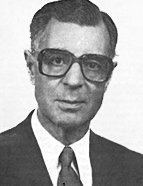

However, he did not remain in this position for long, as the reform of the Schools of Arts and Humanities courses and the introduction of new subjects (Decree No. 41,341 of 30 October 1957) took him back to Coimbra and the University where he had graduated in Law. This was aided by his research work in archives and libraries and the subsequent publication by the journal Biblos, of the Faculdade de Letras de Coimbra [School of Arts and Humanities of Coimbra] , in 1952, of his first historiographical work, which was as long as many of those he would go on to publish: Portugal e a Cultura Europeia. Sécs. XVI a XVIII [ Portugal and European Culture. 16 th to 18 th c enturies ] (1952 and 2006). In November 1958, the School Council of the Faculdade de Letras [School of Arts and Humanities] invited him to take up the chair of Portuguese Cultural History, created by the aforementioned 1957 reform, which was followed by the subjects of Modern Cultural History and History of Philosophy in Portugal (the latter belonging to the Philosophy group).
Thus, at the age of 36, Silva Dias truly began his career as a historian, and at 42 as a university professor of History (and History of Philosophy), although his courses in Cultural History were part of the so-called “ungrouped subjects”. In fact, he emerged outside the context of a typical university career, which normally began as a second assistant and continued with subsequent doctoral exams. He would eventually succeed one of the greatest masters of the Faculdade de Letras [School of Arts and Humanities] , Joaquim de Carvalho, who had died on 27 October 1958. At a meeting on 5 May 1961, the School Council of the Faculdade de Letras [School of Arts and Humanities] awarded him a PhD in Philosophy, which he would receive in a formal ceremony, in accordance with Coimbra tradition, on 20 March 1966. In 1969, he took the exams to become an associate professor and, the following year, he took up the position of full professor. However, his activity was not limited to teaching and research. He exerted a great fascination over his students, which was characterised both by their respect for his high standards and by their desire to explore new paths in the courses they were taking, particularly in the History course.
This work is financed by national funds through FCT - Foundation for Science and Technology, I.P, in the scope of the projects UIDB/04311/2020 and UIDP/04311/2020.
